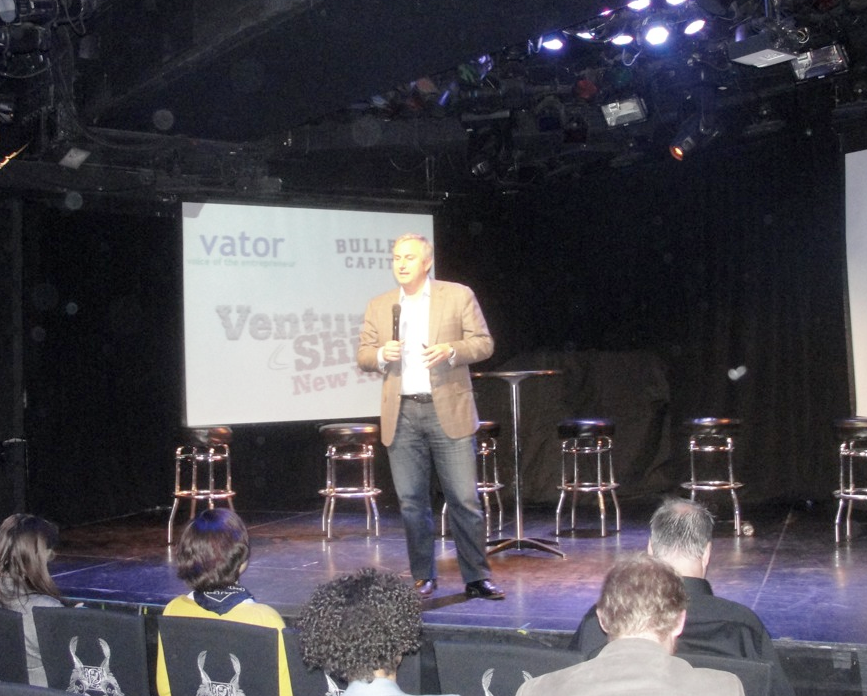
Mark Suster, prolific blogger and partner at GRP, spoke at Vator and Bullpen’s Venture Shift event in New York, and suffice to say, he’s not a demure fella’.
“I think entrepreneurs over-optimize. It’s not likely I’m going to invest in any of your companies, so I have no vested interest in saying this, so I’m just telling you like it is,” he told the audience. “They tend to drag out their investment, thinking ‘the longer I wait, the more value I have.’ What they’re betting is, ‘over time, if I make progress, my valuation will go up.’ But that’s not actually true. What happens is valuations fluctuate like the stock market, and valuations happen to be really high right now, so even with high valuations now, there’s a possibility things will be different next year.”
When money is available, Suster encourages people to take it. “When the hors d’oeuvres tray is being passed around, take two,” said Suster. “Don’t take the whole tray—some people think it makes sense to raise $41 million…[I didn’t catch the reference, but I’m sensing an inside joke here…] but too much money leads to bad behavior.”
So the big question: Are we in a bubble?
“Duh. Of course we’re in a bubble.”
Suster pointed out that there’s a fundamental separation between price and the underlying value of a company.
“People are paying growth prices for market risk. AirBnB is great, but people are paying prices that assumes there’s no market risk—but of course there is. That’s not to say AirBnB isn’t a great company—it’s a great company, I just think people are paying too much for early stage companies.”
As Suster pointed out, it is dramatically cheaper to start a customer today. There are companies launching for $50K and $5K. Founders are younger and more technical. Overall, it’s led to a huge explosion in the number of deals being made, while the total number of VCs has gone down by two-thirds. The good news is that opportunities are much bigger now.
Example: people used to only be on fixed devices for an hour a day on a dial-up connection. But today, everyone is wired up on mobile devices. We’re one click away from a purchase on Amazon or Apple.
“That makes this whole world so much more monetizable.”
Where has this led? ENIFA: “Everybody now is a fucking angel.” Suster believes that most angel investors are going to lose the bulk of their money within five years, which he wouldn’t go into, but you can read more at his blog.
“There’s been a huge increase in focused early-stage VCs, and I think this is great—these guys are focused, they’re professional, and this has led to traditional VCs rushing to do seed deals—some of them up to 100 deals.”
Is there a squeeze on A round investors? Yes, said Suster—by traditional VCs.
True Ventures and FirstRound Capital are different—they’ve put more money into building communities where founders help founders. They’ve created founder email lists, CEO summits… “entrepreneurs are always going to provide better information to other entrepreneurs,” said Suster.
But what happens when things get backed up? VCs go into triage and try to sell off their companies. Suster went on the record to say that 2012 will be the year that the slowdown really starts to hit.
The moral of the story: “Get your money now. This party will end.”
What are the warning signs of a slowdown?
“You get no warning signs. It’ll be an exogenous event that will happen in the next 24 months,” said Suster.


















